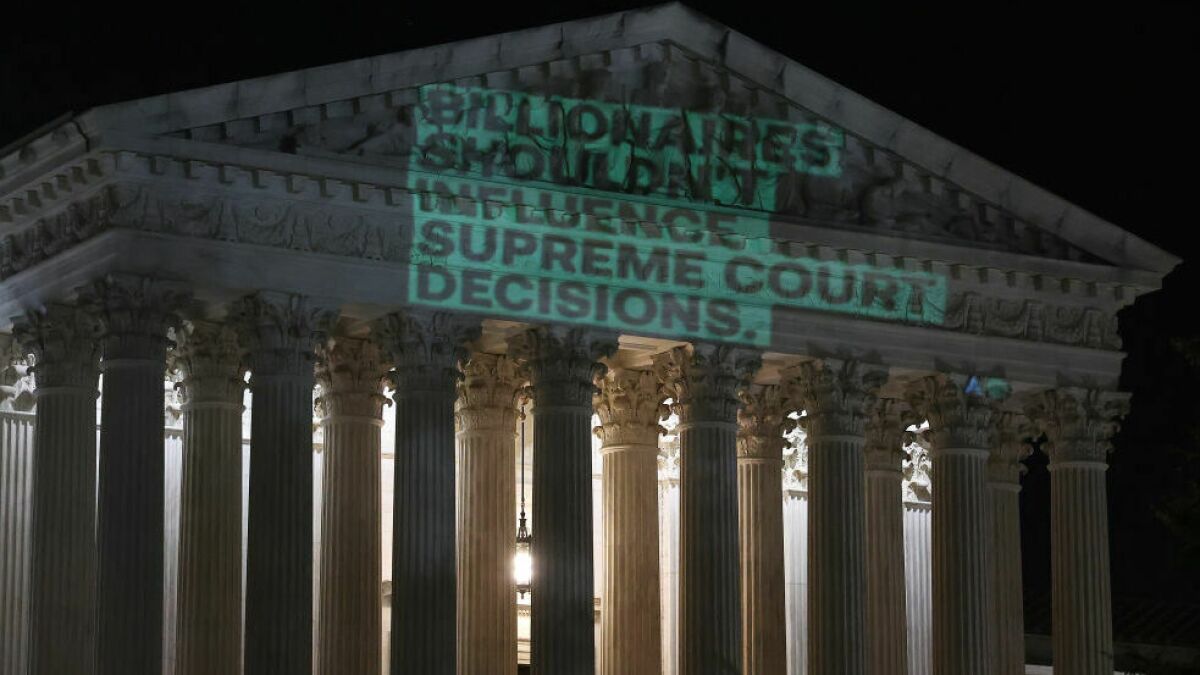
Intriguing article by journalists Andrew Chung and John Kruzel discusses how the U.S. Supreme Court recently announced its first formal code of conduct governing the ethical behavior of its nine justices. This comes as pressure over revelations of undisclosed luxury trips and hobnobbing with wealthy benefactors have plaqued the Court.
The new code drew mixed reviews, with some critics noting the apparent absence of any enforcement mechanism. It was adopted after a series of media reports detailing ethics questions surrounding some Supreme Court members, in particular conservative Justice Clarence Thomas, even as Senate Democrats pursued long-shot legislation to mandate an ethics code for the nation’s top judicial body.
The court has been buffeted for months by revelations of justices accepting undisclosed trips on private jets, luxury vacations, real estate and recreational vehicle deals, and more:
- A $267,230 R.V.: Justice Clarence Thomas bought a recreational vehicle with financing from a wealthy friend. A subsequent Senate inquiry found that his benefactor forgave much of the loan, with ethical and potential tax consequences.
- Opening Doors: Justice Thomas’s membership in an exclusive club gave him access to a wealthy inner circle. It also gave his fellow club members rare access to the Supreme Court.
- Book Deals: Publishing agreements have become highly lucrative for Supreme Court justices. Some experts say that the lack of transparency and clear guidelines around them raises some ethical questions.
The nine-page code contains sections codifying that justices should not let outside relationships influence their official conduct or judgment. This spells out restrictions on their participation in fundraising and reiterating limits on the accepting of gifts. It also states that justices should not “to any substantial degree” use judicial resources or staff for non-official activities.
A commentary released with the code elaborating on some of its provisions said that justices who are weighing a speaking engagement should “consider whether doing so would create an appearance of impropriety in the minds of reasonable members of the public.”
Unlike other members of the federal judiciary, the Supreme Court’s life-tenured justices had long acted with no binding ethics code. That absence, the court said in a statement accompanying the code, had led some to believe that the justices “regard themselves as unrestricted by any ethics rules.”
The ethics drum beat added pressure to a court already facing declining public approval following major rulings in its past two terms powered by its 6-3 conservative majority. The court ended its recognition of a constitutional right to abortion, expanded gun rights and rejected affirmative action collegiate admissions policies often used to increase Black and Hispanic student enrollment.
My opinion? This is a small but significant step in the right direction. However, it does not specify how the rules would be enforced or by whom. The Court has also failed to acknowledge past transgressions. Our take-away? It’s good that they feel some obligation to respond to public criticism and act like they care.
Please contact my office if you, a friend or family member are charged with a crime. Hiring an effective and competent defense attorney is the first and best step toward justice.






